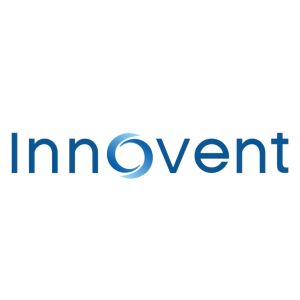Innovent and Lilly Jointly Announce Results of Six Clinical Studies of TYVYT® (sintilimab injection) to be Presented at the European Society for Medical Oncology (ESMO) Virtual Congress 2020
Rhea-AI Summary
Innovent and Eli Lilly announce the presentation of six clinical studies for TYVYT® (sintilimab injection) at the upcoming ESMO Virtual Congress 2020 from September 19-21. Key studies include Phase 3 trials for lung cancer and hepatocellular carcinoma, showing positive preliminary efficacy. Innovations include the combination of sintilimab with various chemotherapy agents, providing insights into patient selection and treatment outcomes. The collaboration between Innovent and Lilly emphasizes a strong partnership in advancing oncology treatments.
Positive
- Presentation of six clinical studies at a prestigious oncology conference, potentially enhancing visibility.
- Phase 3 studies indicate positive preliminary efficacy and survival benefits in advanced cancer treatment.
- Strategic collaboration with Eli Lilly strengthens research and commercialization capabilities.
Negative
- Limited effective treatment options available for advanced hepatocellular carcinoma, indicating market competition.
- Reliance on early-stage results may pose risks if subsequent phases show adverse outcomes.
News Market Reaction – IVBIY
On the day this news was published, IVBIY declined NaN%, reflecting a moderate negative market reaction.
Data tracked by StockTitan Argus on the day of publication.
SAN FRANCISCO and SUZHOU, China, Sept. 14, 2020 /PRNewswire/ -- Innovent Biologics, Inc. ("Innovent") (HKEX: 01801), a world-class biopharmaceutical company that develops, manufactures and commercializes high quality medicines for treatment of oncology, metabolic, autoimmune and other major diseases, and Eli Lilly and Company ("Lilly", NYSE: LLY) jointly announce that results of six clinical studies of TYVYT® (sintilimab injection) will be presented during the upcoming European Society of Medical Oncology ("ESMO") Virtual Congress 2020 from September 19th to 21st. The annual ESMO conference is among the most prestigious and influential global oncology conferences, during which oncologists around the world will share the latest research progress in cancer treatments.
The six sintilimab studies to be presented at ESMO Virtual Congress include two LBAs (late-breaking abstracts, mini oral) and four e-posters (including two ongoing Phase 3 studies). The studies cover indications including lung cancer, gynecological cancer, hepatocellular carcinoma, gastric cancer, and other solid tumors. A brief summary of the studies is as follows:
Cancer Type: Lung Cancer
Presentation type: LBA (mini oral)
Biomarker Results from the ORIENT-11 Study (NCT 03607539): Finding biomarkers to accurately predict the efficacy of Immuno-combination therapy is still a hotspot and difficult issue in the study of PD-1 inhibitors. In the ORIENT-11 study, sequencing was conducted on baseline tumor biopsies to explore the association between immune related genes and clinical efficacy. The results could improve our understanding of the mechanism of action of immunotherapy-chemotherapy combination and provide a scientific rationale for future selection of suitable patients.
Researcher: Professor Yunpeng Yang, Sun Yat sen University cancer center
Results of the ORIENT-12 Study (NCT03629925): sintilimab plus gemcitabine and platinum chemotherapy as first-line treatment for locally advanced or metastatic squamous non-small-cell lung cancer (sqNSCLC). Clinical benefit from platinum-based chemotherapy for patients with advanced sqNSCLC is limited. Previous studies have shown the clinical benefits of the combination therapy of PD-1 inhibitor with paclitaxel/platinum chemotherapy as first-line treatment for sqNSCLC. In a Phase 1b cohort study, sintilimab in combination with gemcitabine/platinum chemotherapy has shown good efficacy and acceptable safety as first-line treatment for sqNSCLC. ORIENT-12 is a randomized, double-blind, Phase 3 study evaluating sintilimab or placebo in combination with gemcitabine and platinum chemotherapy as first-line treatment for locally advanced or metastatic sqNSCLC. ORIENT-12 has demonstrated for the first time survival benefit by treatment with PD-1 inhibitor in combination with gemcitabine and platinum chemotherapy in first-line sqNSCLC.
Researcher: Professor Caicun Zhou, Shanghai Pulmonary Hospital, Tongji University
Cancer Type: Hepatocellular carcinoma (HCC)
Presentation Type: e-poster
Sintilimab plus IBI305 (bevacizumab) as the first-line treatment for advanced HCC (NCT03794440). So far the treatment of first-line advanced HCC is limited with feasible choices such as sorafenib or lenvatinib. Immuno-oncology inhibitors have shown therapeutic value in HCC, with PD-L1 inhibitor (atezolizumab) in combination with a VEGF inhibitor reporting clinical benefits in unresectable or metastatic HCC patients before systemic treatment. This study will announce the safety and preliminary efficacy of combining PD-1 inhibitor and VEGF inhibitor in the first line treatment for patients with advanced unresectable or metastatic HCC. Currently sintilimab is undergoing Phase 2/3 study in combination with Byvasda (bevacizumab injection) in comparison with sorafenib in the first-line treatment of advanced HCC.
Researcher: Academician Jia Fan, Zhongshan Hospital, Fudan University
Cancer type: Gastric Cancer
Report type: e-poster
ORIENT-106 Study: To date, systemic chemotherapy remains the main choice for unresectable locally advanced or metastatic gastric cancer / gastroesophageal junction adenocarcinoma (G/GEJ). The prognosis of these patients is poor with the median overall survival (mOS) only about one year. Preclinical studies have shown that an anti-VEGF receptor 2 (VEGFR-2) antibody can restart the tumor microenvironment to avoid immunosuppression of tumor cells. In clinical studies, it was also observed that blocking PD-1 and VEGFR-2 at the same time could achieve synergistic anti-tumor effect. The ORIENT-106 study based on this theory is a multicenter, randomized, open label Phase 3 clinical trial to verify the efficacy and safety of sintilimab (IgG4 PD-1 inhibitor) and ramucirumab (IgG1 VEGFR-2 antagonist) as the first-line treatment for locally advanced or metastatic G/GEJ.
Researcher: President Ruihua Xu, Sun Yat sen University Cancer Center
Cancer type: Gynecological Tumor
Report type: e-poster
There are limited effective treatment for advanced cervical cancer patients who have previously received platinum-based chemotherapy. PD-1 inhibitor monotherapy has shown promising efficacy in patients with cervical cancer with positive PD-L1 expression. The combination of PD-1/PD-L1 inhibitors plus anti-angiogenesis drugs has shown significant anti-tumor activity in certain cancers. Professor Qin Xu from Fujian Cancer Hospital conducted a phase II study of sintilimab plus anlotinib for the treatment of advanced cervical cancer with positive PD-L1 expression. The study may potentially further improve the clinical outcomes of patients with advanced cervical cancer who have previously received platinum-based chemotherapy.
Researcher: Professor Qin Xu, Fujian Cancer Hospital
Cancer type: Solid Tumors
Report type: e-poster
The antitumor effect of chemotherapy combined with either PARP inhibitors or PD-1 inhibitors have been demonstrated in several studies, and previous researches have shown a synergetic effect of PARP inhibitors combining with PD-1 inhibitors. However, little was known regarding the combination of the three regimens. This is a phase 1b clinical study initiated by Professor Hu Yi of the Chinese PLA General Hospital, exploring the combination of sintilimab, platinum and niraparib (a PARP1/2 inhibitor) in the treatment of previously treated advanced solid tumors. The novel triple combination could potentially overcome resistance and further improve clinical outcomes of patients with advanced solid tumors who failed standard therapy.
Researcher: Professor Yi Hu, Chinese people's Liberation Army General Hospital
About Innovent
Inspired by the spirit of "Start with Integrity, Succeed through Action," Innovent's mission is to develop and commercialize high quality biopharmaceutical products that are affordable to ordinary people. Established in 2011, Innovent is committed to developing, manufacturing and commercializing high quality innovative medicines for the treatment of cancer, metabolic, autoimmune and other major diseases. On October 31, 2018, Innovent was listed on the Main Board of the Stock Exchange of Hong Kong Limited with the stock code: 01801.HK.
Since its inception, Innovent has developed a fully-integrated multi-functional platform which includes R&D, CMC (Chemistry, Manufacturing, and Controls), clinical development and commercialization capabilities. Leveraging the platform, the company has built a robust pipeline of 23 valuable assets in the fields of cancer, metabolic, autoimmune diseases and other major therapeutic areas, with 3 products, TYVYT® (sintilimab injection), BYVASDA® (bevacizumab injection) and SULINNO® (adalimumab injection), on market, 1 asset under NDA review with priority review status, 4 assets in Phase III or pivotal clinical trials, and additional 15 molecules in or close to clinical trials. TYVYT® (sintilimab injection) has been the only PD-1 inhibitor included in the NRDL since 2019.
Innovent has built an international team with expertise in cutting-edge biological drug development and commercialization. The company has also entered into strategic collaborations with Eli Lilly, Adimab, Incyte, Alector, MD Anderson Cancer Center, Hanmi and other international partners. For more information, please visit: www.innoventbio.com.
About Eli Lilly and Company
Lilly is a global healthcare leader that unites caring with discovery to create medicines to make life better for people around the world. We were founded more than a century ago by a man committed to creating high-quality medicines that meet real needs, and today we remain true to that mission in all our work. Across the globe, Lilly employees work to discover and bring life-changing medicines to those who need them, improve the understanding and management of disease, and give back to communities through philanthropy and volunteerism. To learn more about Lilly, please visit us at www.lilly.com.
About Innovent Biologic's strategic cooperation with Eli Lilly and Company
Innovent entered into a strategic collaboration with Lilly focusing on biological medicine in March 2015 – a groundbreaking partnership between a Chinese pharmaceutical company and a multinational pharmaceutical company. Under the agreement, Innovent and Lilly are co-developing and commercializing oncology medicines, including TYVYT® (sintilimab injection) in China. In October 2015, the two companies announced the extension of their existing collaboration to include co-development of three additional antibodies targeting oncology indications. In August 2019, Innovent entered into an additional licensing agreement with Lilly to develop and commercialize a potentially global best-in-class diabetes medicine in China. In August 2020, Innovent and Lilly announced an expansion of their strategic alliance for TYVYT® (sintilimab injection). Its collaboration with Lilly indicates that Innovent has established a comprehensive level of cooperation between China's innovative pharmaceuticals sector and the international pharmaceuticals sector in areas such as R&D, CMC, clinical development and commercialization.
SOURCE Innovent Biologics, Inc.







